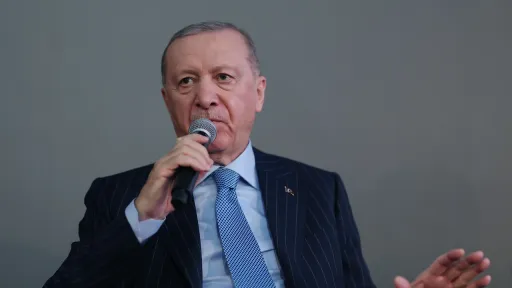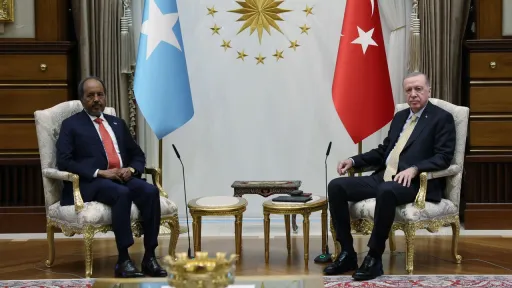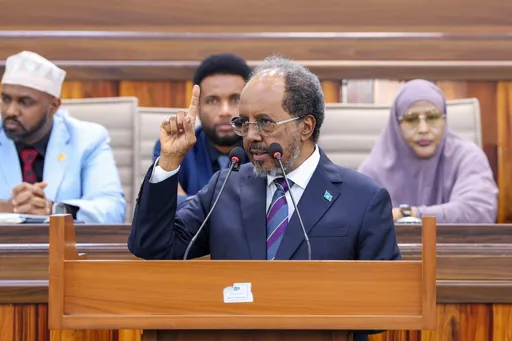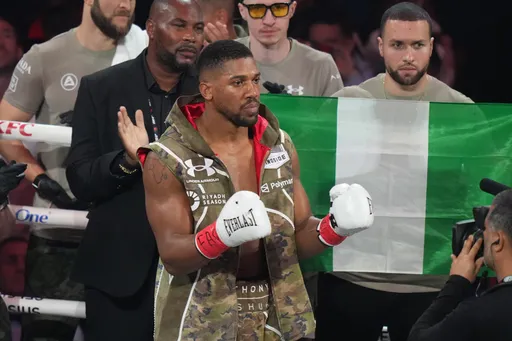There's just a month to go before the United States holds its next presidential election. Early voting began in September, and at least half a million Americans have already submitted their ballots.
The general mood in the US is tense.
Domestically, it is contending with the devastating aftermath of Hurricane Helene, as well as a port strike that threatens the recovering economy. Internationally, the US continues to support Israel's yearlong bloody campaign in Gaza, as well as its recent invasion of Lebanon and escalation with Iran.
With polls showing Vice President Kamala Harris and former president Donald Trump neck-and-neck in the race to the White House, any foreign policy choices made this month could make all the difference.
Political fallout
Since last October, Israel's war in Gaza has levelled much of the occupied territory and killed tens of thousands of Palestinians.
This devastation and the lives lost as a direct result of ceaseless indiscriminate bombing should unquestionably be the paramount focus now and for the duration of this crisis.
But a secondary consideration is the ongoing political fallout from this war. These reverberations have certainly been felt within Israel and the broader region; arguably, however, it is the US political landscape that has witnessed the most tumult.
In particular, President Joe Biden's indelible link to the carnage that Israel has inflicted on the people of Gaza has frayed the Democratic electorate. Both young voters and Black Americans–two groups that the Democratic party cannot afford to alienate–have been among the administration's loudest critics.
Unsurprisingly, however, the communities that were the most vocal in their dissatisfaction were Arab and Muslim Americans.
Polling showed a precipitous drop in support for Biden in 2024, compared to 2020. Now that he's no longer on the ticket, have Muslims and Arabs changed their stance? The answer is complicated.
Ambivalent about Harris
When Harris initially became the Democrats' presumptive nominee for president, many Arabs and Muslims were willing to give her the benefit of the doubt. She was, after all, famously the first high-ranking official in the Biden administration to call for a ceasefire.
Moreover, she was generally regarded as having a more empathetic perspective when talking about the plight of the Palestinians.
The honeymoon period did not last all that long, however.
At a rally in Michigan (of all places) shortly after Biden stepped down from the candidacy, Harris was interrupted by protestors calling for a firm stance on Israel's ongoing offensive in Gaza, whom the vice president proceeded to silence in a rather condescending manner.
Even more disheartening was the campaign's refusal to let Ruwa Romman, a Palestinian Democratic state representative from Georgia, speak on the Democratic National Convention main stage in August.
She had planned to call for a ceasefire and also endorse Harris for president. This was the moment when many voters who were initially deferential became wholly disillusioned.
If Harris cannot see fit to grant even a symbolic gesture to those calling on the US to hold Israel to account, then how can voters of conscience trust that she will take substantive steps to do so when in office?
So the latest poll numbers are, once again, reflecting a sense of abandonment.
A survey conducted by the Council on American Islamic Relations (CAIR) in August did not find a majority of Muslim voters supporting Harris in a number of key swing states, like Georgia, Pennsylvania, and Arizona.
Moreover, in the key state of Michigan, Harris trails third-party candidate Jill Stein by a considerable margin–only 12 percent of respondents said they plan to vote for the Democratic ticket, while 40 percent backed the Green Party’s nominee.
Difficult decision
Yet, as the election draws near, Arabs and Muslims are still considering the ramifications of their vote–and reaching divergent conclusions.
Some are clear on where they stand, like Emgage Action, who endorsed Kamala Harris, or Amer Ghalib, the mayor of the only Muslim-run city in the US, who endorsed Donald Trump.
There are also a number of prominent figures in the American Muslim community who have explicitly encouraged community members to vote for a particular candidate.
Muslims for Harris-Walz, for example, launched their initiative with a webinar that brought together a slew of Muslim politicians at various levels of government.
In contrast, dozens of leading religious figures from across the country recently published a letter urging Muslims in the US to vote third party for president, stating that "we stand firm in our refusal to support any political party or candidate that has actively participated in and funded the unprecedented violence (in Gaza)."
Many Muslim voters, however, are less, well, committed.
The Uncommitted Movement refuses to endorse Harris. The group also warns against a Trump presidency and, as such, advised not to vote third party.
Perhaps the most apt expression of American Muslims' electoral dilemma comes from Muslim Women for Harris, who disbanded following the DNC snub of Romman, only to reverse their decision and back Harris' candidacy once again.
The organisation said one reason for this was due to the "clear danger that a Trump presidency could pose for our Black and Brown communities."
It is certainly hard to dispute that a second Trump term would bring with it distinct challenges for minority groups in the US. Consider his abhorrent rhetoric around (non-White) immigrants at his rallies, which could very well translate to policies that not only limit future immigration, but endanger legal immigrantsalready in the US.
Alongside these concerns is a wariness of the Green Party candidates. At the top of the ticket, Jill Stein's seemingly selective condemnationof war crimes has troubled many in the Arab and Muslim American community.
And so many Arabs, Muslims, and others for whom Gaza is a top priority have become those unicorns of American politics: undecided voters.
Meanwhile her running mate, Butch Ware, was recently criticised for implying that those who vote for Kamala Harris risked punishment beyond the grave.
And so many Arabs, Muslims, and others for whom Gaza is a top priority have become those unicorns of American politics: undecided voters.
But, rather than being undecided between the two major parties, the vast majority are torn between voting for the Democratic candidate or voting third-party–or, perhaps, not voting at all.
Barring an unexpected shift in the political winds, this indecision is likely to carry through to November. That said, an "October surprise" would certainly be par for the course this election cycle.
The author, Youssef Chouhoud is an Assistant Professor of Political Science at Christopher Newport University, where he is affiliated with the Reiff Center for Human Rights and Conflict Resolution. His research examines public opinion among (and toward) minorities in the United States and also models support for democratic norms in the Middle East. He also has an extensive record of public scholarship on American Muslim attitudes and behaviors. Prior to joining CNU, Dr. Chouhoud was a Provost’s Fellow at the University of Southern California, where he received his Ph.D.
Disclaimer: The views expressed by the author do not necessarily reflect the opinions, viewpoints and editorial policies of TRT Afrika.
➤ Click here to follow our WhatsApp channel for more stories.
























